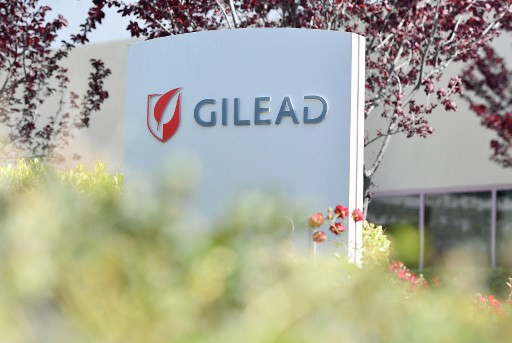Popular Reads
Top Results
Can't find what you're looking for?
View all search resultsPopular Reads
Top Results
Can't find what you're looking for?
View all search resultsCOVID-19 drug buyout threatens developing nations
This “America first” attitude in stockpiling the drug means that there is likely to be very little supply for the rest of the world over the next several months.
Change text size
Gift Premium Articles
to Anyone
U
nited States President Donald Trump has announced an extraordinary deal to ensure that Americans have access to the first authorized drug treatment for COVID-19: remdesivir, the first drug approved by the US Food and Drug Administration to treat COVID-19 that is made by American pharmaceuticals company Gilead Sciences. The deal was announced as it became clear that the US epidemic was spiraling out of control.
At the same time, Anthony Fauci, the country’s leading public health expert who is leading the nation’s COVID-19 response, testified before the Senate that the US was sliding backward in its mitigation efforts.
Gilead holds the patent for the drug, which was invented for Ebola but failed in human trials against that disease, which means that no other company can make it. The first 140,000 doses that were supplied for drug trials around the world have been used up, while the Trump administration has bought more than 500,000 doses – all of Gilead’s production for July and 90 percent of its August and September output.
Data shows that despite its ability to shorten the recovery time for some COVID-19 patients, remdesivir has not been found to significantly improve an individual’s chances of surviving the disease.
This “America first” attitude in stockpiling the drug means that there is likely to be very little supply for the rest of the world over the next several months. The US’ allies are already criticizing the action for undermining the global effort against the pandemic. UK business undersecretary Nadhim Zahawi has been quoted as saying that the US was not helping the global effort by buying up the entire stock of remdesivir.
In contrast, the UK has been working in a responsible manner to deal with the pandemic in a way that will help the entire world. Earlier this month, researchers at the University of Oxford announced that the affordable steroid, dexamethasone, had been found in studies to reduce the risk of death by up to one-third in coronavirus patients with severe respiratory complications.
When a superpower country sees a political need to be ahead of the competition, this will have even greater impacts for developing nations. If we were to draw a spectrum of pandemic mitigation, on one end of the extreme would be governments focusing their efforts on saving lives “at all costs” by issuing total lockdowns; on the other extreme would be governments focusing on saving the economy by adopting very loose restriction policies.
Most developing nations have no other choice but to balance these two extremes by imposing partial or semi-lockdowns. The governments of these nations cannot afford to impose total lockdowns because their economies are still growing. To make matters even more complicated, these nations have limited research and development capabilities.
Although this has not stopped them from coming up with solutions, it would be very pragmatic for them in this extraordinary situation to count on leading nations to come up with the solutions first.
Indonesia is one such example. Already quoted by many as a new epicenter of the pandemic, the country is struggling to cope with identifying COVID-19 cases across the more than 17,000 islands of the archipelago. It was very slow to develop testing capacity before the Joko Widodo administration ramped up mass testing capabilities. Nevertheless, the reported cases in Indonesia are still thought to be just the tip of the iceberg. Without a nationwide serological survey, the true scale of COVID-19 infection in Indonesia cannot be determined.
Treating COVID-19 patients among is large population will be hugely expensive. With an already limited budget for the entire health sector, conquering the epidemic will be simply impossible. And with Trump’s decision to purchase almost the entire stock of remdesivir, the price of the drug will predictably swell and, in the end, will deny potential access to the drug to other countries, including Indonesia.
As we are dealing with human lives, our common enemy is clearly the coronavirus. To quote Winston Churchill: “The discoveries of healing science must be the inheritance of all. That is clear. Disease must be attacked, whether it occurs in the poorest or the richest man or woman, simply on the ground that it is the enemy.”
***
Senior lecturer at University of Derby; member of Indonesian Public Health Association (IAKMI). The views expressed are his own.










